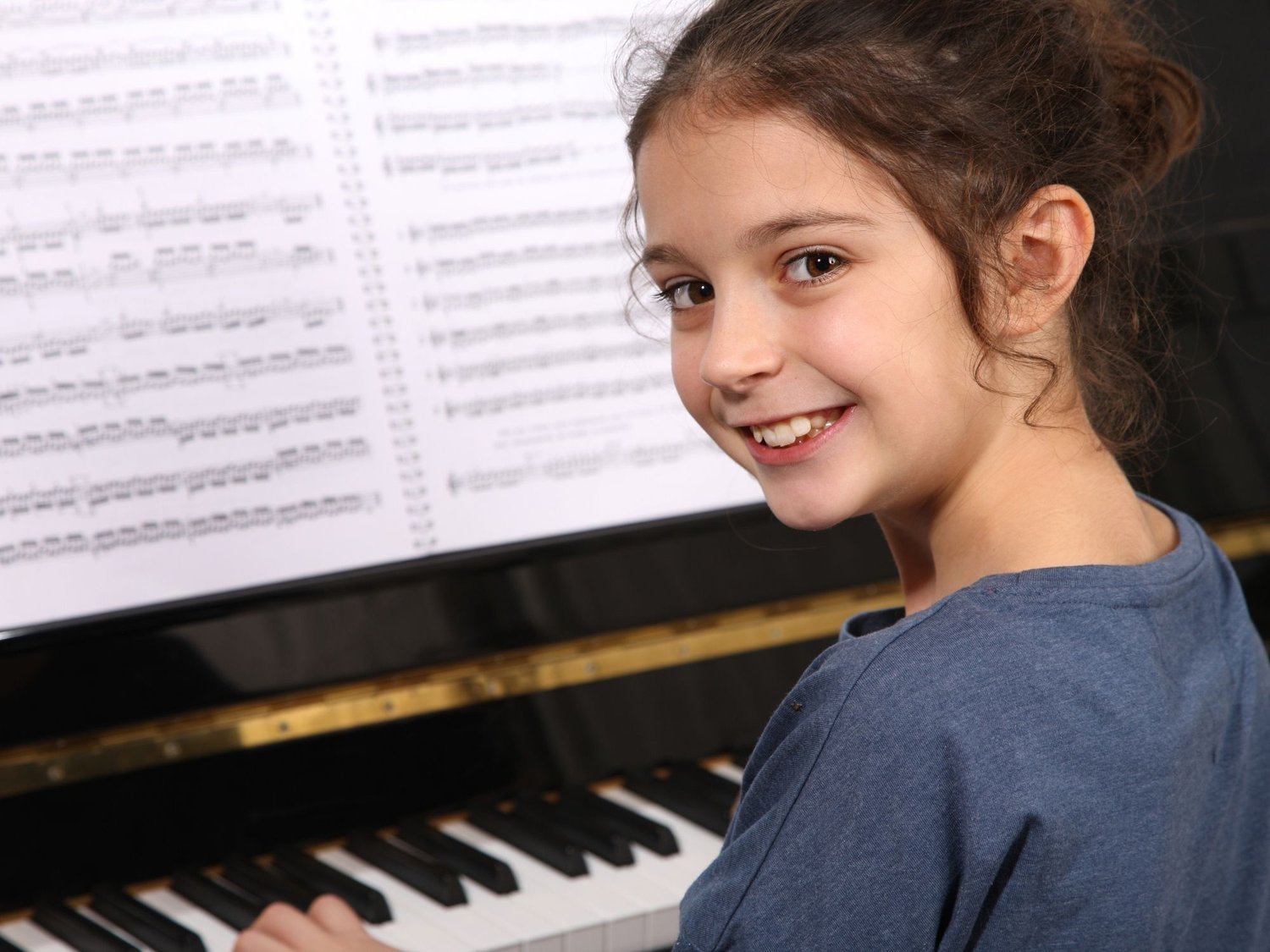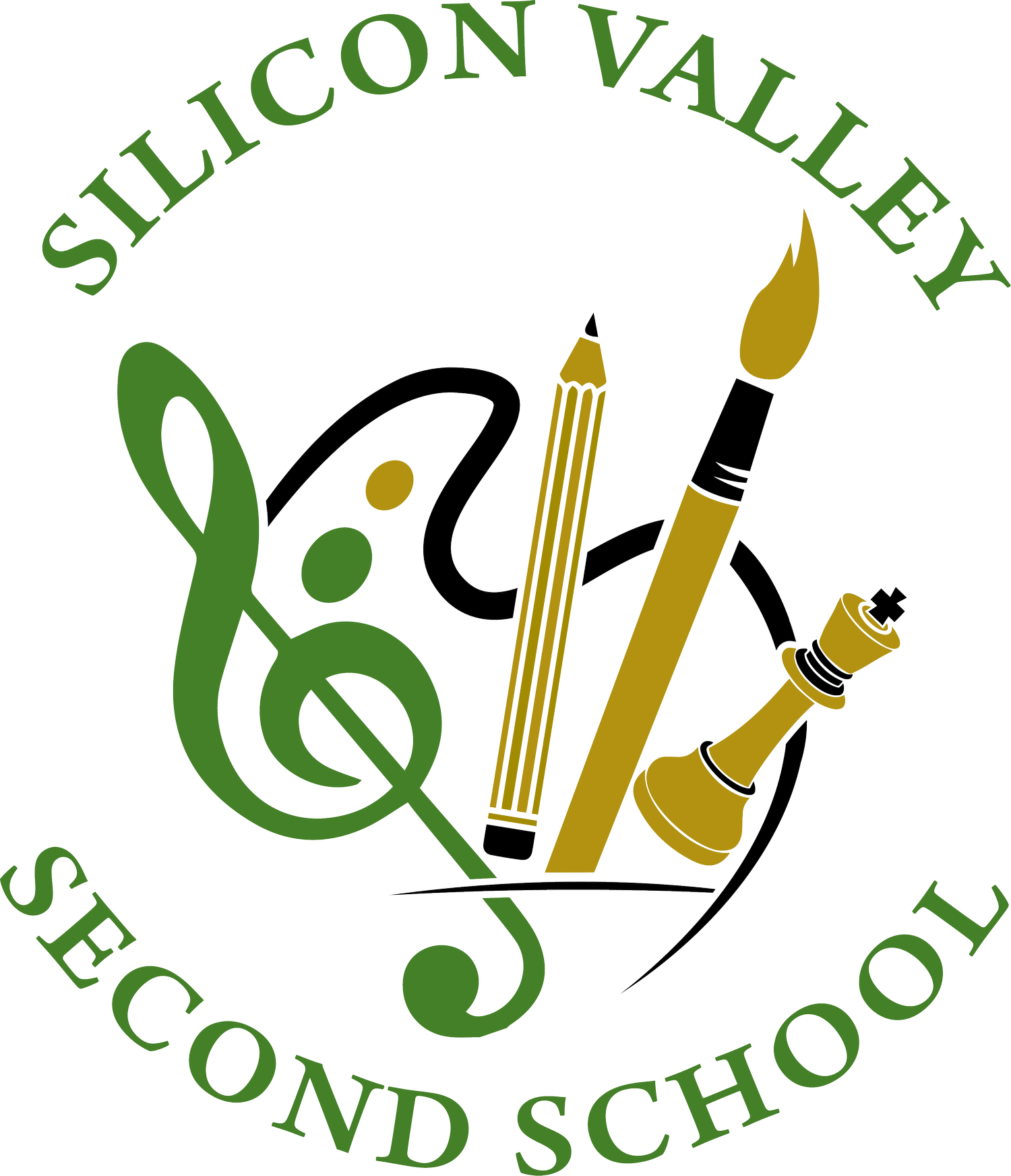Piano Lessons in Cupertino For Kids and Adults
Silicon Valley’s finest private piano teachers for students ages 5+
Our professional studio is just 10 minutes north on Sunnyvale Saratoga Rd for many of our students. We look forward to working with you.

Begin Your Piano Journey
At Silicon Valley Second School, we help young pianists turn into confident lifelong musicians. Members of our teaching faculty perform at a professional level, have years of teaching experience, and enjoy passing on their enthusiasm for music to their students. Your child or high schooler will learn theory, technique, memorization and more, and we’ll prepare them for performance opportunities, assessments and more. We would love to welcome you to our program - please get in touch to start.
It Starts With Qualified Teachers
Many programs rely on curriculums or software to create structured learning experiences. At SVSC, we rely on the genuine expertise of our professional instructors. While we have a comprehensive grasp of graded piano literature, performance repertoire, method materials and more, we also prefer to teach by example. Furthermore, our piano teachers have master’s degrees or higher, and they have engaged in a significant amount of supervised teaching, in addition to on-the-job experience. We’ve worked with hundreds of students of all ages and experience levels, and we’d love to work with you.
Performance Opportunities
We welcome all of our piano students into our recital program at SVSC. Performing doesn’t have to be scary! Rather, it’s a chance to inspire your peers, share the music you love, and learn how to prepare for performance under pressure. We guide you along the way.
Students will learn how to interpret pieces of music, voice the melody lines, and self-critique – all part of creating a performance that speaks to audiences. Furthermore, students learn how to practice and memorize music in a way that is air-tight under pressure. Whether a student wishes to compete and audition publicly or not, our in-house performance opportunities create confidence that can’t be found elsewhere.
Holistic Piano Education For Students in Cupertino
Optional Weekend Music Theory Courses
Do you want your child to understand music at a deeper level, take AP theory courses in school, or apply for a music degree? We have two music theory classes each Saturday, and students get to make friends and learn about theory with their peers. Learn about chord structure, formal analysis, and how different genres and compositional techniques work. From scale degrees to tone rows and Neapolitan sixth chords, they can learn it all.
Technique and Reading
Firstly, we want our piano students to play with beautiful technique. Good hand position, lack of tension in the arm, arm weight, wrist rotation and so much more come into play. Whether we are teaching a student how to play scales and arpeggios with legato technique, or addressing their usage of the damper pedal, we cover all of the foundational bases. We will prepare them to play even the most challenging music with both speed and beautiful tone.
Reading music is also very important for classical musicians. They’ll learn the bass and treble clefs, identify chord patterns, and even practice the art of sight reading in their lessons. This helps them learn music more quickly, and enables them to work as a collaborative pianist or session musician.
Skill Level Appropriate Repertoire
We assign real pieces of music, by real composers, at each stage of the piano journey. From elementary-level Bartok pieces to tricky Chopin Nocturnes and Rachmaninoff, we know what pieces are appropriate based on taste, usage (performance, audition, or just development), and the student’s deficiencies. We teach pianistic concepts through music that our students love.
Method Meets Flexibility
We use time-tested methods like Alfred, Faber, and the Royal Conservatory sequence, but we don’t follow any method book blindly. For beginners, we focus on building solid hand position, rhythm reading, and interval recognition. For more experienced students, we work on refining tone production, expanding repertoire, and introducing lead sheet reading and chord charts.
Each student’s lesson plan is tailored to their goals. Some want to master classical repertoire. Others want to play movie themes, write their own songs, or jam with a band. Our curriculum adapts to all of it — and often blends the two. A student might study a Bach minuet alongside the chord changes to a Coldplay song.
Repertoire That Reflects Your Interests
We keep repertoire varied and engaging. Students explore pieces from the classical canon, like Beethoven, Mozart, and Debussy, but we can also introduce them to blues, jazz, film scores, and modern pop. We want to keep you motivated. For some students, tackling the left hand challenges in a Chopin prelude makes it easier to play the music of other composers. And with other students, we can look at the harmonies in a Debussy piece and see how they apply to modern jazz standards. It’s all fascinating, and we will help you pursue your unique interests.
We Build Real Independence
We teach students how to practice efficiently on their own. That means helping them break down difficult sections, isolate the rhythm, and apply strategies like “hands separate, then hands together.” We talk about why repetition matters and how to track progress. You will learn how to choose a piece, practice it, and memorize it all on your own. We can even help you use practice logs and audio recordings. As students gain experience, they begin to troubleshoot their own issues and take pride in solving musical challenges without waiting for someone to tell them what to fix.
Our Classically-Rooted Lessons Help You Pursue Other Goals
The technique, musicality, harmony, and knowledge of music theory you develop through Bach or Schumann carry over into every genre.
Once a student can shape a phrase, balance voices, and read notation fluently, they’re prepared to take on jazz voicings, synth textures, or even build their own beats. We often see students transition from classical to composition, music production, or accompaniments with confidence.
Use Your Skills Outside of the Lesson
Piano lessons support students who want to compose, join bands, write film music, or even score video games. It’s a foundational instrument in that it also pairs well with music theory, both clefs, and reading skills.
We’ve had students use their piano training to earn college arts credits, accompany choirs, and record music for podcasts or digital storytelling projects. Others simply use it as a lifelong creative outlet. Whether your goal is creative, academic, or personal, piano gives you the skills to express yourself clearly.
Work With a Genuine Mentor
Our instructors care deeply about their students as people. We check in regularly, ask about musical interests outside of lessons, and adjust pacing when needed. Students who may have felt behind or overwhelmed in other programs often thrive here, not because expectations are lowered, but because they’re reframed.
We want students to build not just musical skill, but self-trust. Piano lessons at Silicon Valley Second School are designed to support that growth, with structure, encouragement, and the flexibility to let each student carve their own path. We welcome students from Cupertino and neighboring areas who are looking for a more personalized, student-centered music experience. Whether you're based in Sunnyvale, Saratoga, Los Altos, or right here by the studio, our piano program offers flexible instruction designed to grow with each student.
Take Piano Lessons in Cupertino

Step 1
Fill out our quick online registration form.
Step 2
Speak with our director who will place you with the best teacher for your child’s needs.
Step 3
Attend your trial lesson and start your journey to a sharper mind!
FAQs For Our Cupertino Piano Lessons
What Ages Can Begin Piano Lessons In Cupertino?
Children can start piano lessons as early as five years old. At that age, students begin with fun exercises that teach rhythm, finger strength, and note reading. Older beginners and adults can start anytime with lessons tailored to their skill level and goals.
What Makes Your Piano Teachers Different?
Each teacher holds a master’s degree or higher and has years of experience both performing and teaching. Our instructors focus on building solid fundamentals while helping students discover the joy of playing music they love.
Do You Teach Adults As Well As Children?
Yes. Many adults take lessons at our Cupertino studio to learn piano for the first time or to return to it after a long break. Lessons move at a comfortable pace and focus on technique, music reading, and pieces that match each student’s interests.
What Can Students Expect In A Typical Lesson?
Each lesson includes scales or exercises for technique, sight-reading practice, and work on assigned pieces. Teachers also explain musical interpretation and dynamics to help students understand how to shape phrases beautifully.
What Styles Of Music Do You Teach?
Our piano lessons center on classical training while also including modern and popular pieces. Students may study music by Bach, Beethoven, Chopin, or learn familiar contemporary songs to keep practice engaging.
How Long Are Piano Lessons?
Lessons are offered in 30-, 45-, and 60-minute formats. Shorter lessons work well for younger students, while older or more advanced students benefit from longer sessions that allow time for technique and repertoire.
How Often Do Students Perform?
Students perform four to five times each year in school recitals. These concerts provide valuable experience with stage presence and confidence while celebrating progress in a supportive environment.
What Are The Piano Lesson Fees?
30-minute lesson: $55 per class or $250 per month
45-minute lesson: $80 per class or $360 per month
60-minute lesson: $105 per class or $475 per month
Discounts are available for families who pay for a full semester or take lessons twice a week.
Do I Need A Piano At Home To Start Lessons?
A piano or full-size digital keyboard is recommended. For beginners, a quality keyboard with weighted keys is acceptable. As students progress, an acoustic piano helps refine touch and tone.
How Do You Handle Canceled Lessons?
If you must cancel, please contact the school at least 24 hours before your scheduled time. Lessons canceled early can be made up. Lessons canceled with less than one day’s notice are charged, as the time is reserved for the student.
How Do I Enroll In Piano Lessons?
You can contact Silicon Valley Second School to schedule lessons. Our studio is only about ten minutes north of Cupertino on Sunnyvale Saratoga Road, making it convenient for local families. Lessons are available year-round for both children and adults.




